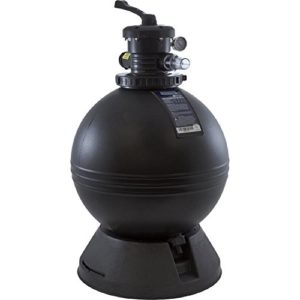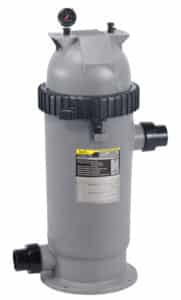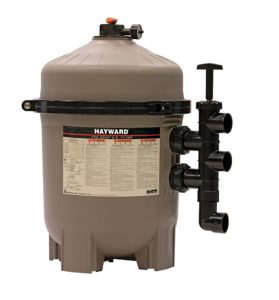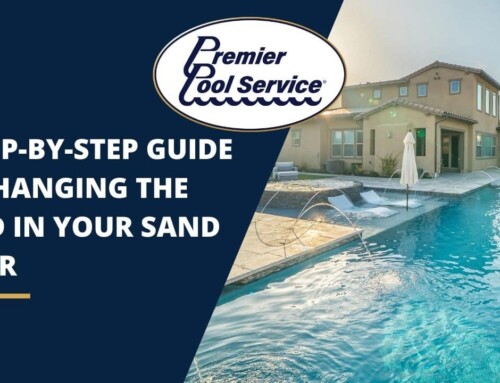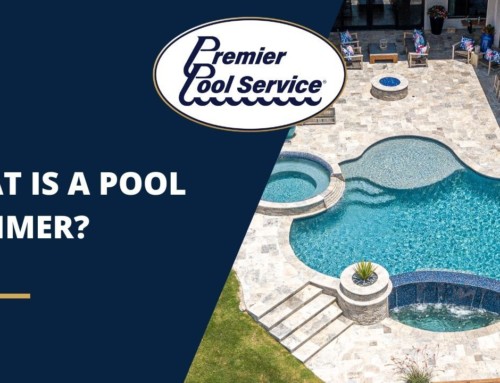Learning how to find the best pool filter for your College Station, TX pool is important. If you make the wrong choice in the pool filter that you choose, you may not get the performance that you want and find yourself putting out more cash than necessary. In this article, we are going to show you how to find the best pool filter for your pool.
How to Find the Best Pool Filter – Better Function
Before you start your search for a pool filter, you need to know that there are three types of pool filters. You need to know what kind you need before you start comparing the features and prices. The three types of pool filters are:
- Sand
- DE (diatomaceous earth)
- Cartridge
All three of the filters are used with a pool pump that pushes water through them. If you see the term “filter system” this is in reference to the pump and the filter. The pump works by pulling water from the pool’s skimmers and pushing it through the filter inside the tank. The filter then traps any debris and even small particles called microns.
When choosing a filter for your pool, it is best to select one that is going to pair well with your pool pump. These two essential pool equipment items need each other to function properly, and when they work together they become more energy efficient. Inquiring energy saving equipment is a must when you are looking to save money, especially when it comes to your swimming pool.
How to Find the Best Pool Filter – Sand Filter
Sand filters are very common, easy to understand, easy to use, and they are inexpensive. Sand filters are considered the least effective type of filter and will not filter your pool water to the lowest possible micron, but are still incredibly popular. The swimming pool filter is filled with sand. Pool water is pulled into the filter and pressed through the sand. The sand filters out particles from the water. After the water has passed through the sand filter, it flows back into the pool.
Swimming pool filters containing sand can be cleaned by back washing the sand, or, if the sand becomes exceptionally dirty, by replacing the sand in the filter, which is relatively inexpensive. The main drawback of the sand filter is that it allows some particles through the sand, back into the water. Sand filters also use more water over time due to repeated back washing being necessary.
How to Find the Best Pool Filter – Cartridge Filters
Cartridge filters are another type of filter. These swimming pool filters clean as the pool water filters through the filtering material. The filtering material captures particles and releases the cleaned water back into the pool. Cartridge filters are a very popular choice for many pool owners. Cartridge filters also are the preferred filter for a saltwater pool as they do not require back washing; therefore, no saltwater is back washed into your backyard landscaping. Cartridge filters also filter the water to a much smaller micron than sand filters resulting in much clearer pool water.
If you choose a cartridge filter, it will require some maintenance. When the filter becomes full of debris, it becomes much less effective. You should plan to remove the filter and gently spray it clean with a water hose at least twice over the course of each swimming pool season. Premier Pool Service recommends that the filters be cleaned regularly for optimum performance and can gladly perform this service for you.
How to Find the Best Pool Filter – D.E. Filters
Diatomaceous earth, or DE, swimming pool filters are the final type of pool filter. Diatomaceous earth is the exoskeletons of diatoms that have become fossilized. This material is mined from the earth. DE swimming pool filters are considered the highest quality filter because they filter to the finest micron. DE water filters contain grids inside the filter housing. The Diatomaceous earth is poured into the housing, where it coats the grids. The fossilized diatoms act as tiny sieves, filtering out microscopic particles. Diatomaceous earth can filter out debris as tiny as 5 microns, or 5/1,000 of a millimeter.

